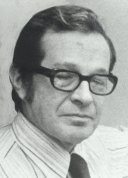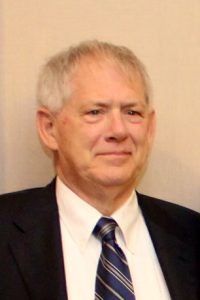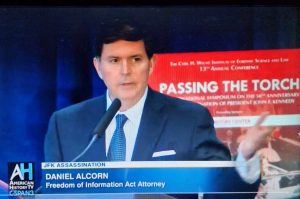The Assassination Archives and Research Center
The AARC was founded in 1984 in order to provide a permanent organization which would acquire, preserve, and disseminate information on political assassinations. Its initial holdings came largely from the personal library of AARC co-founder Bernard (“Bud”) Fensterwald , Jr. and the documentary archive collected by his Committee to Investigate Assassinations, which he founded in 1969. Now augmented by materials donated by noted authors and researchers or obtained under the Freedom of Information Act (“FOIA”) and the JFK Assassination Records Collection Act (“JFK Records Act”), the AARC holdings include:
- More than 2,000 books on assassinations, intelligence agencies, intelligence operations, organized crime, covert activities, narcotics trafficking, and other subjects relevant to the study of political assassinations.
- More than 100,000 pages of FBI Headquarters files on the assassination of President Kennedy obtained under the FOIA.
- A 48,000 card index to the files of the FBI’s Dallas field office on the assassination of President Kennedy.
- In excess of 80,000 pages of records obtained under the FOIA which the FBI made available to the House Select Committee on Assassinations (“HSCA”). This file contains voluminous records pertaining to organized crime figures (Marcello, Trafficante, Roselli, etc.) and to Cuban exile organizations, among other matters.
- Dozens of file cabinets containing voluminous records pertaining to political assassinations: e.g. newspapers and magazine articles, government documents, trial transcripts, unpublished manuscripts, letters, research notes, and material gathered by critics and researchers, etc.
- 50,000 pages of the Los Angeles Police Department’s investigation into the assassination of Senator Robert F. Kennedy.
- Valuable audio tapes, video tapes, photographs, and movie films regarding the many controversies about recent American political assassinations.
The AARC’s holdings constitute the most extensive collection of records on the JFK assassination in private hands. The collection has been enhanced by the donation of personal files belonging to several researchers and officials including Richard Popkin, Anthony Summers, Earl Golz, Zachary Sklar, Jim Garrison, and others (new donations are tax deductible and are enthusiastically encouraged).
Under the leadership of its co-founder James Lesar, the AARC has played a primary roll in a campaign to compel disclosure of the JFK records which have now been kept secret for more than a half century. The AARC’s efforts to combat government secrecy surrounding political assassinations have resulted in the release and public dissemination of important records and information. These efforts continue under the leadership of AARC President, Daniel S. Alcorn.
Daniel S. Alcorn
American Lawyer specializing in the field of Federal Litigation, Federal Administrative Practice, Corporations, Real Estate and Trade Associations.
Background
Born on November 18, 1955 in Poplar Bluff, Missouri, United States. Son of Roy A. and Virgie Lois (Carter) Alcorn.
Education
University of Virginia (Bachelor of Arts, with distinction, 1977). University of Virginia School of Law (Juris Doctor, 1980).
Career
Partner 1985-1999, Fensterwald & Alcorn, A Professional Corporation (Tysons Corner, Virginia) specializing in Litigation, Constitutional Law/Freedom of Information, International Law, Labor & Employment/Security Clearances. Admitted to the bar, 1980, Virginia. 1984, District of Columbia.
Director: Metropolitan Washington Airports Authority, 1990-1996. Vice-Chairman, 1994-1996.
Member: District of Columbia Bar, Virginia State Bar.
Founder, Dulles Corridor Rail Association, 1998.
Director, Assassination Archives and Research Center, 1992- 2023.
President, Assassination Archives and Research Center, 2023.
- DANIEL ALCORN has been listed as an AV lawyer by Martindale-Hubbell.
- Association of Criminal Defense Lawyers Executive Director Stuart Statler called Mr. Alcorn, “a lawyer’s lawyer” after his work on the FBI Crime Lab FOIA case.
On the C-SPAN Networks:
Daniel S. Alcorn, as a Board Member for the Assassination Archives and Research Center is featured on three videos in the C-SPAN Video Library; the first appearance was a 1997 House Committee as a Counsel for the National Association of Criminal Defense Lawyers.



